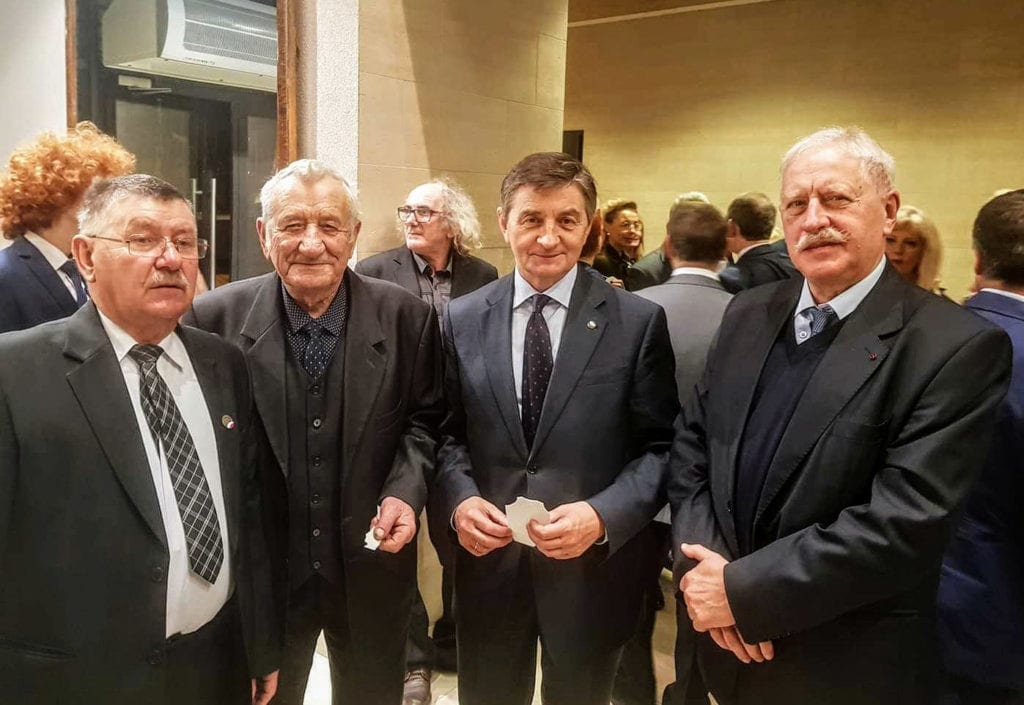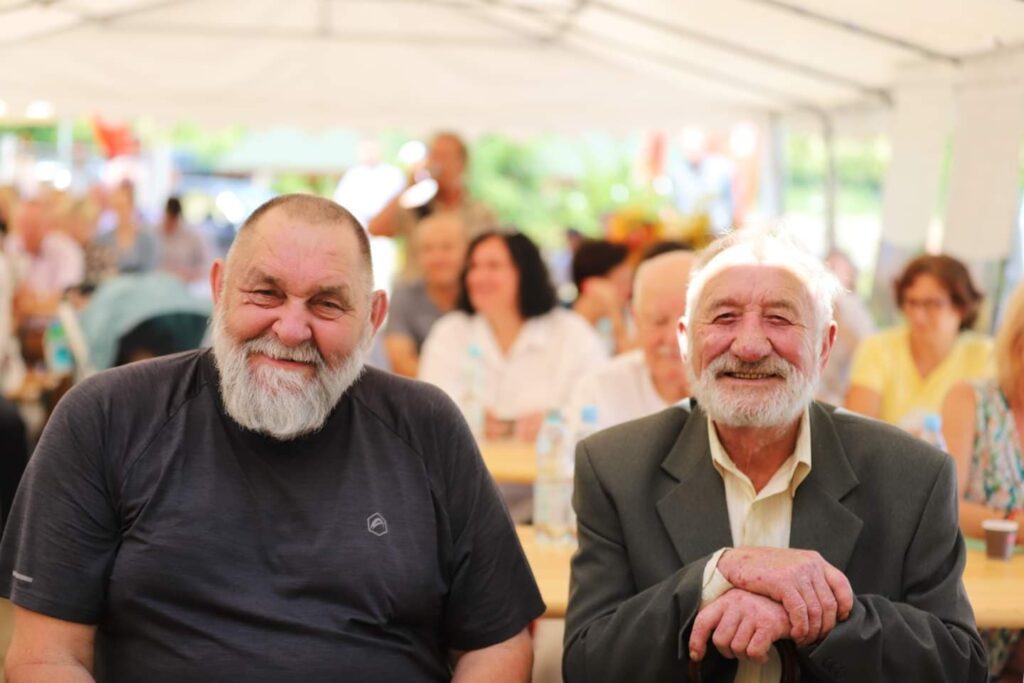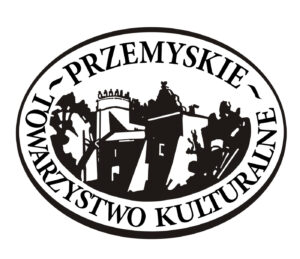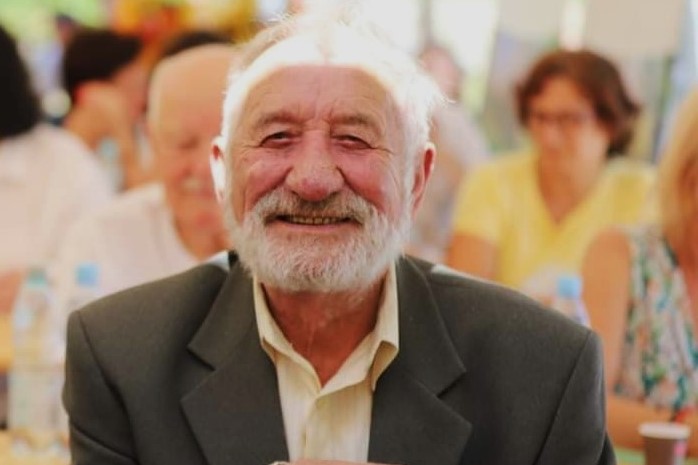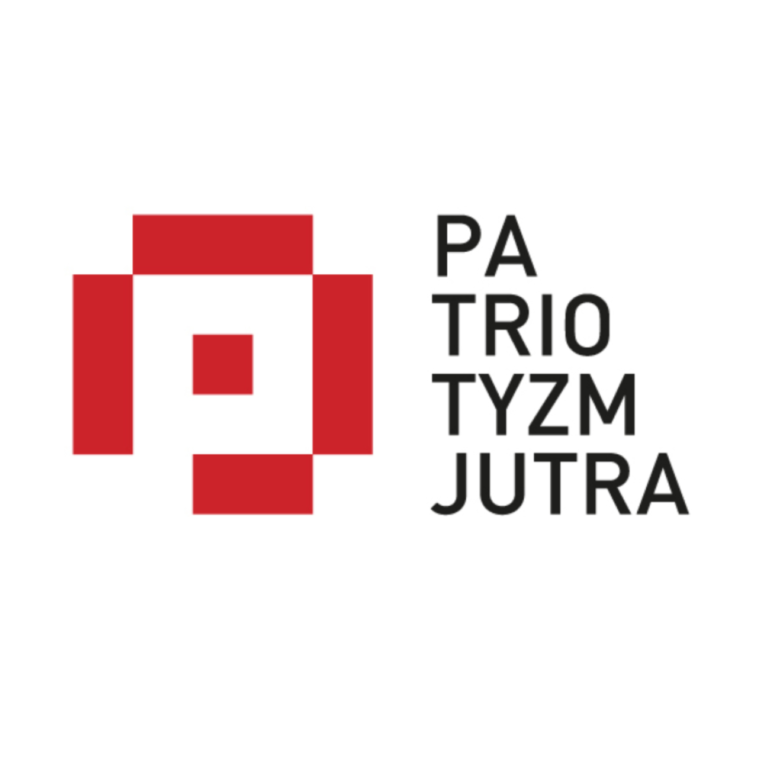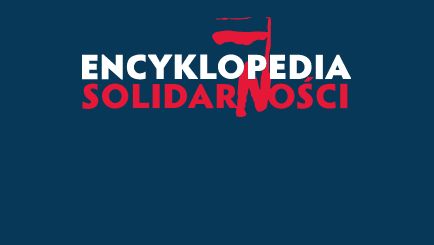
FROM THE ENCYCLOPEDIA OF SOLIDARITY IPN
Jan Karus, born September 16, 1941 in Tapin near Jaroslaw. Graduated from the Vocational School in Jaroslaw (1958).1958-1961, 1963-1966, 1973-1975 worked on his parents' farm, 1961-1963 military service.https://encysol.pl/es/encyklopedia/biogramy/23195,Karus-Jan.html
.
Jan Karus
(Farmer from the village of Tapin in the municipality of Rokietnica, in the district (former province) of Przemysl. Prominent anti-communist activist and organizer of the individual farmers' trade union. Chairman of the Regional Board of the "Solidarity" RI trade union in the Przemyśl province and at the same time chairman of the Audit Committee of the National Board in 1982 and vice-chairman of the National Board after 1988).
***
The situation in the countryside, as in the country as a whole, was becoming dire. The worst thing was that this law, which the communists passed in 1975, overturned the decree on land reform. And just as workers' unions were being formed, a farmers' union was formed in Krakow at the end of 1980. I mobilized some people here, went to Krakow and registered our union there. And while I was in Cracow, the first founding convention was held in Warsaw, and that's where it just started to take off.
Peasant strike in Rzeszow and registration of the union
Later, when the Rzeszow strike took place in 1981, we elected a provincial council. This was the All-Polish Founding Committee, where Jan Kulaj was the head and I was his deputy. We then joined a group of workers and organized a peasant strike in Rzeszow. We took control of that building opposite the PZPR Committee, now the University is there (I think it was the Railway Man's House). Later we were joined by farmers from all over Poland. Our advisors were Ostafil, Dyka, Prof. Stelmachowski, Banaszkiewicz and Przemysl Auxiliary Bishop Blaszkiewicz. The bishop sat there with us, and no one mentions him.
I chaired three committees on that strike, including the committee on church affairs, where Bishop Blaszkiewicz was my advisor. Later there was a quarrel between me and Walesa, it was at the WSK plant, because Walesa contemptuously said that "we will also give the peasants some kind of association to form". So there followed such a war between us, because I traveled with him around the plants in Rzeszow. Well, and Walesa with Gierek and Lis on a grand scale wanted us to quickly sign the Rzeszow-Ustrzyki Agreements. When it was almost time to sign the settlement, I stood up and said, "Listen, gentlemen! What does it give us to sign this agreement, if we sign not on our own terms, but on their terms. Because, after all, their 1975 parliamentary resolution overpowered the decree on land reform, and the authorities can take anyone's land and do whatever they want with it."
People picked up on this and said: "We will not sign!" This went on for three days. Ciosek was still there resisting the concession, and I said, "Minister, this is not the way." Later we also managed to convince Jasio Kulaj to our resistance. Walesa was terribly indignant about why we didn't want to sign, "because there could have been peace already." And Gieremek was so pusillanimous, pressed us so hard to sign the settlement and end the strike, that in the end I couldn't stand it: I grabbed him by the collar, pulled him outside and gave him a kick in the ass. He never forgot that to me.
It was somewhere on the night of February 18, 1981, when we finally negotiated the essentials and signed the agreement. Except that I was still reading the letter of intent. We continued to submit several registration applications, these applications they rejected. Finally, we did a convention in Poznań in March, and there Jasio Kulaj was elected chairman of the national union, and I was elected chairman of the National Audit Committee. And so it kept chugging along until May, until they finally registered us as the Union Solidarity of Individual Farmers.
Within the union, we primarily supported the Silesian workers. We did in Tuczempy (the late Mietek Stopyra organized it) an independent purchase of agricultural produce from the authorities and from the GS, which we then sent for the striking workers. We contributed ourselves and people contributed money for this buying up, and someone later transported it to Silesia. This was our biggest action, which lasted practically until martial law. Today hardly anyone wants to remember it.
Activities under martial law
During Martial Law I was interned and imprisoned in Uherce and Lupkow. Once I got out on May 17, 1982, the very next day I visited my colleagues (including Józek Slisz, also Gabrys in Warsaw) with a suggestion to organize something.
With Marek Kuchcinski, we traveled around the parishes and asked people to bring food for the families of the internees and persecuted. Priests announced our appeal and people brought food. We had a food warehouse in Przemyśl, in the convent of the Sisters. Benedictines (in the Holy Trinity parish). Well, and in Warsaw, we set up an informal group at Fr. Bijak's church in Wilanów, where we met once a month. Soon we also began to arrange pamphlets against the dictatorship of the Commune. My son, who went to 6th grade at the time, would bring these pamphlets from the Carmelite Fathers in Cracow. There he arranged for us this "bibula" and books from underground publications - Adam Szostkiewicz, who was imprisoned together with me during the internment, and later moved from Przemyśl to Krakow. My colleagues came to see me. When someone from the farmers came to see Bishop Tokarczuk, he had to come in with me. I had such a "monopoly" on this. Wiesiek Kęcik also came here. Well, and we constituted such an action group.
The Secret Service "appreciated" me, because there was not a week that they did not search my house. Well, and there was also not a week that I was not locked up by them. It's funny, but I got so used to these raids that when they were gone for more than a week, it was as if I was missing something. And my wife was young at the time, when they knocked everything out of the closets, she would put it back together after the morning. And how many times at night they came and took me away. And it was like that all the time, although they didn't find anything, and I had a duplicator, but well hidden. Later the duplicator with Marek Kuchcinski we took away.
Expedition for "blotting paper"
With Marek Kuchcinski, we also traveled to Krzeszowice-Czarna outside Krakow, to the Albertine Fathers' monastery, from where we brought "bibula" and books of the underground circulation. Actors, the cultural cream of Krakow, also came there. There were also training courses there. Once Mark and I drove there in his old toyota, and only by a miracle did we return unscathed.
In the morning we had just loaded the whole car with these brochures and books, because we were about to leave for Przemysl after breakfast, until all of a sudden the secret police drove up the monastery hill in their "combat" cars and illuminated the monastery with their aerial searchlights. Fortunately, we were standing behind the monastery, so we drove down the gravel road from the hill as fast as we could, away from the militia cars. We were afraid to take the paved road to Krzeszowice and to the main route from Katowice, because there the secret police were sure to block the road. We preferred to force our way to Krakow through meadows and dirt roads to Opatów. Fortunately, the frost had cut down the usually marshy meadows in this area and our toyota was able to cope with the snowy roads. We arrive in Krakow, and there is fog, very slippery and full of police patrols. Surprisingly, we managed to get through Krakow and back to Przemysl itself, avoiding checks along the way.
Decent ubek
I must say that, however rare, there were also some decent ubek. And such was, for example, Lieutenant Tabisz. I know of once a fresh shipment of "blotter paper" and second-circulation books came to Jurek Trojner. He barely had time to put it in the cabinet in the hallway, and here five SS men, led by Lieutenant Tabisz, burst in and began a search.
Tabish sensed something, because he stood by that cabinet in the hallway, looked in there, took one of the books in his hand, looked at it and says: "Mr. Jurek, and where do you get such decent books? Why don't you lend me some?" Well, and all the time he was standing near that cabinet. In fact, it was as if he was protecting it while four of his subordinates searched the entire apartment. They didn't find anything there, of course, and he didn't say a word about the "blotter" being in the cabinet. He then saved Jurek Trojnar, because if they had found this "blotter" they would have put him down.
I once had a rather unusual and puzzling adventure with this Lieutenant Tabisz. Once, at the end of martial law, Marek and I just happened to be back from a practice in Krosno, where we were also in Haczow at Fr. Kaczor's. We ate something in Eger on Grunwaldzka Street, after which Marek drove his toyota home, and I went down to Kmiecie, where I had a "maluch" parked. I thought I would stop by to see Andrew Kucharski some more. I'm walking, but I feel some car stop right next to me, almost rubbing against me. I look, and here Lt. Tabisz sticks his head out and says: "Sit down, Mr. Jas!" I gasped. And he: "Well sit down, you won't regret it! You will know everything." I think to myself, it's hard, if they want to "put me in", after all, they will find me anyway. So I said that I'll be right back, and went to Andrew. I say, "Andrew, give me two packs of cigarettes, because I don't know when I'll be back. And remember, Tabish is taking me and he's drunk." I go back, get into his car, we arrive and park next to the Salesians. He gets out and says: "Wait, Mr. Jasiu, you will not regret it, you will know everything. I'll be right back, just tell my mother that my son was born." He left his gun and briefcase in the car and left.
And you know what, for the first time in my life I chickened out. I ran away. I think to myself, if he drank, then surely he didn't drink alone, but with his esbeks. If I went there, they could tease me. And I wouldn't be able to stand it and knock them down. I was still a strong, young peasant at that time, and I wouldn't give in. But - I continue to think - if there are several of them, I won't be able to handle them and they will make a cripple out of me. So I ran away. Sometime years later, when he was already working elsewhere, I met him and asked, "What did you want to tell me then?" And he: "It was to go with me, then you would have learned everything." And he didn't reveal anything to me.
Round table and secret "Magdalenka"
This is how it went on until the round table. Anyway, I was one of the seven farmers appointed to the round table talks, but they didn't let any of us in. Józek Slisz managed to get in, but he was only there for half an hour. Walesa didn't want us.
The worst thing was that when we came to the front of the Ministry of Labor, where we were to present the farmers' demands, we found no one there. It turned out that just on that day they had left for Magdalenka. So we went to Magdalenka, but they were no longer there either. Everything was closed. Apparently, they had already managed to arrange all their business deals, traded everything and gave security guarantees to the commies that no one would take away their unlawfully appropriated property.
Civic Committee and the election of candidates to the Diet
At the beginning of 1989, the Solidarity elite came to an agreement with the Commune about partially free elections. At that time, Marek Kaminski, as head of the Regional Executive Committee of Workers' Solidarity, and I, as chairman of the Regional Board of Agricultural Solidarity, were authorized to establish the Solidarity Civic Committee in Przemyśl on April 10. At the same time, we delegated Stanislaw Zolkiewicz to a meeting of the electoral organizing committee of the Civic Committee under Lech Walesa, from where he "brought" Onyszkiewicz to us as a candidate for the Sejm on behalf of "Krajowa".
The second candidate for the Sejm was to be put forward by our agricultural "Solidarity". So we held a primary in Yaroslavl within the framework of the NSZZ RI "S", in which I was one of the candidates. Rev. Stanislaw Bartminski was present there as an observer. Well, and in the voting, Tadzio Trelka got 7 votes, and I got 236. But when candidates for the elections were officially selected within the Civic Committee of the "S" in Przemyśl, a couple of my colleagues acted in such a way that Trelka became the candidate for the Sejm from the Agricultural Solidarity, and not me.
It was unfair to me, but I got over it. Janek Musial, on the other hand, couldn't stand it and in a noble reflex wanted to give me his candidacy for senator. I thanked him, but could not accept it. I was embittered in any case, because the pigskin game for positions began then. And so, to tell the truth, it continues to this day.
However, I had the satisfaction that when we went to see Fr. Bishop Tokarczuk a few years later (witnessed by Mrs. Balicka, our school principal at the time), he was very apologetic about it. He said: "Mr. Karuś, I'm very sorry that I didn't support you, but I was galvanized that Jan Karuś couldn't be an MP candidate, because he is a radical."
When Wojciechowski was still provincial governor, we were the first in Poland to report the activities of the regional trade union Solidarity of Individual Farmers. After that, I was no longer involved in the Committee's activities, as I was the provincial chairman of Solidarity RI and vice-chairman of our national union.
My assessment of the Third Republic
What I can say about these 26 years of the Third Republic is that there is nothing left of those former solidarity ideals of ours. Completely nothing. And I guess the consequence of this was that despite the glorious history of the 15- or 16-million-strong Solidarity movement, after two years of participating in power in the 1990s - we lost with a thud.
A few years ago, at a meeting in Lancut, I said: "Do you not notice, gentlemen, that the Fifth Partition of Poland is taking place? Partition by notarization, selling off thousands of hectares of land for nothing to foreigners (on the basis of substituted poles)?".
But despite everything, I have no bitterness in me today. And if I had the strength and was young, I would do the same things now as I did then. Only maybe with different people and a little differently. Because at that time there was such a tendency in the Civic Committees to seize power at all costs. That's what Mazowiecki and Gieremek ordered. I sat with them there in Warsaw very often at that time. So I said to them, "Listen, gentlemen, this is how you suddenly want to take over everything. But would any of you take over the largest warehouse of goods in Poland... from a thief and without an inventory? After all, you wouldn't do it, because you would become accomplices of the thief."
And Gieremek stood up and said: "What is this peasant from under Przemysl going to advise us here". And then Jurek Kropiwnicki, the future minister and mayor of Lodz, told Gieremek thus: "This peasant from under Przemysl, Jasio Karus, is one hundred percent right here. Because this way we will take all the responsibility for all these years. And we won't last long."
And Kropiwnicki was right. After two years, Solidarity lost with a thud. If Walesa had not overthrown Prime Minister Olszewski's government at the time and dissolved the parliament, Olszewski would have been the best prime minister. And he ruled for a mere six months. Unfortunately, the secret deals in Magdalenka promoted the "soured" elite of the Third Republic, and this buried true freedom and true democracy.
Had it not been for martial law, Poland might have had a chance eight years earlier. And you know, even though I sat that it was not humane, that it was thuggish, I would not hold a grudge against communism for martial law, if it had done something good for Poland. But the destruction of Solidarity through martial law was needed by the Communists only to have the conditions to enfranchise themselves. And that was the worst thing, that the country was losing out on it, and they enfranchised themselves.
Especially since 1985 they seized all the banks, FOZZ, appropriated enterprises, PGRs for nothing. They looted everything they could. And in 1989 they were already enfranchised. And the secret "Magdalenka" only gave them guarantees that the "status quo" would be preserved, that it would stay that way, that there would be a "thick line" and no one would take it away from them anymore. Anyway, they actually continued to be in power, because they had influence over many prominent Solidarity activists, on whom they kept compromising documents at home. And that's how the Third Republic was created and functioned.
Only now I hope that the Law and Justice governments will begin to change this situation. Because, after all, we have social inequality, when a small percentage of the population owns most of the wealth - and this is obtained in an unfair way. Let's hope the Law and Justice government starts to change this now!
About municipal governments
Let me tell you, there is something else these rulers of ours did wrong. In 1990, there was a beautiful law on local governments, which gave the municipal council the ability to decide. Well, this local government law was prepared by Bronislaw Majgier together with me, not Minister Kulesza. And our deputies took advantage of it. Few points from our study were changed, and 76 percent passed in parliament without a single amendment. I was Bronko's consultant. We sat on it for days and nights. And this local government law caused municipalities, even small ones, to start developing dynamically. The first three terms were a period of rural development: roads were built, schools were built, gasification, water supply and sewage systems were done. I am convinced that this was due to the fact that, according to that law, the decision-making in the municipality was done by the municipality council, and not by the mayor alone. An accountant was responsible for the financial affairs of the municipality, so municipalities had to hire good accountants. And something was happening in those municipalities back then.
Unfortunately, this was spoiled in 2002. The amended local government law gave the vast majority of matters to the one-man decision of the mayor. And this was - in my opinion - a terrible mistake. This was done by the then ruling SLD with the PSL, but it was actually to the advantage of all parties. After all, for all of them it was an attractive prospect that if they won the local elections, they could fill the positions of mayors with so much power with their people. And while previously every municipal penny was considered by the municipal council, now it is the mayor who decides. And since it is easier to bribe one decision-maker than the majority, if a dishonest mayor happens, he can be easily "encouraged" by someone to make decisions favorable to the "client."
And this is how corruption and indebtedness began to spread in the municipalities. I, for one, cannot accept that the municipal council has almost nothing to talk about and is rather only from raising its hand, as everything is top-down determined by provisions in the Law Journal. Self-government in the municipality has been reduced to a minimum.
And today I'm quietly hoping that Law and Justice will restore the old function of the council, and introduce tenure for positions - from village head and mayor to president of the country. Simply put: two terms and rest your head, man, before you want to run for office again. Then it would make it harder for those holding these offices to get into some corrupt deals with dishonest businessmen or voters. And secondly, it would give chances to young and capable people to govern in the municipality, because, after all, young people should take the reins of government.
And today the mayor is in a position to rule the municipality almost for life. He, after all, has almost all the money at his disposal and distributes it as it suits him. The council decides only eight percent of the budget. So it's enough for the mayor to save himself some money from the budget and in an election year "bribe" one or two larger villages with some municipal investment. Well, and he is guaranteed election for another term. And as the mayor would know that after the second term he would have to leave anyway, at least in this second term he would not be guided by his own political interest in allocating funds. So term limits should be introduced.
About the Polish People's Party
Just in case, I will mention that the PSL had nothing to do with the Solidarity of Individual Farmers, on the contrary, it was the greatest enemy of our union. The PSL was and is the worst organization that exists in the countryside. Because just as the ZSL (United People's Party) sold out to the communists before, the PSL in the Third Republic sold out entirely to the post-communists.
Well, because, after all, that old line of the ZSL was not farmers, but business people, lawyers and others. They didn't want to join the PZPR, so they signed up for the ZSL to hold on to important positions. After they renamed themselves the PSL, they selected some more young people. And today this is a group of people who were enfranchised by the communists, and as a party they inherited huge amounts of money and property from the ZSL. Because they, under communism, had big profits from the business of the Ruch company or the paste factory. They had their bank. They had capital. They did not join the ZSL (or the PSL) for the idea of defending peasant interests. For them, it was just a cover for their own interests, because with this inherited wealth from the ZSL and this money, they could maintain themselves as a political party and participate in power with any winning party that needed them.
.
(The interview was conducted and authored by - Jacek Borzecki)
.
